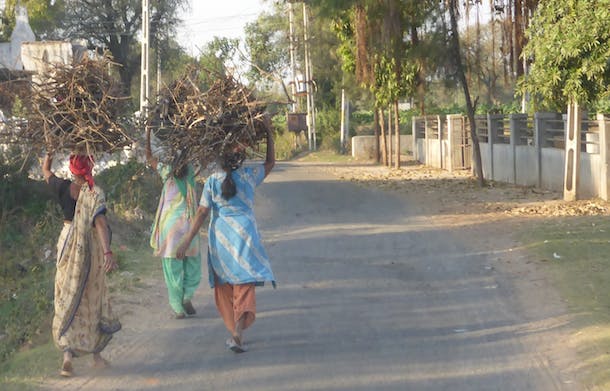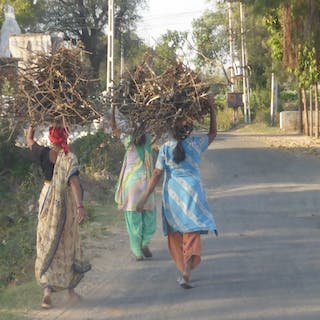
India Women Carrying Firewood for Cooking
Cooking is one of the most dangerous activities for girls and women in the developing world, where more than half the population still cooks food over open fires.
Without access to cleaner cookstoves and fuels, women endure incredible hardships. They are exposed to deadly smoke that kills over 4 million people every year and causes cancer, pneumonia, and lung disease. Women and children also must risk their safety, health, and sometimes their lives, to search for and collect fuel. In many cases, women walk for hours to find firewood and have to carry heavy loads, putting them at risk for physical and sexual attack, dehydration, and physical injuries.
While there is much to celebrate for women and girls since the original Beijing Declaration and Platform for Action was created, one crucial driver of gender equality and women’s empowerment was completely omitted from the framework – access to cleaner household energy.
Clean cooking energy access is a critical global gender issue cutting across several Beijing Platform for Action areas of concern; it is especially important for achieving success in the areas of (1) women and health, (2) women and poverty, (3) women and the environment, and (4) women and the economy.
There is a growing movement of companies, individuals, non-profits, and entrepreneurs focused on creating awareness about the clean cooking issue, on enhancing the performance and availability of technologies and fuels, and on strengthening enterprises so they can scale production and distribution.
Together with our more than 1,000 partners, the Global Alliance for Clean Cookstoves has an ambitious goal to foster the adoption of clean cookstoves and fuels in 100 million households by 2020, and to help create a world where there is universal access and use of cleaner energy and cookstoves by the year 2030, with women actively contributing to and benefiting from this vision.
Adoption of cleaner cookstoves and fuels by 100 million households will have broad impacts on women’s empowerment. Each year, it will save:
- 470,000 lives, most of whom are women and children;
- More than 100 hours per household spent collecting firewood;
- 6.2% of household income; and
- The amount of CO2 emitted by 65,000,000 passenger vehicles.
The 20th anniversary of the Beijing Platform for Action opens a new opportunity to acknowledge the critical role access to clean cookstoves and fuels plays in achieving gender equality. As we look toward Beijing+20 and commemorate International Women’s Day, now is the time to commit to working together to achieve our 2030 vision of a world where cooking does not kill and women are not disadvantaged in their homes, their communities, and their countries because of the lack of access to clean cooking energy.

